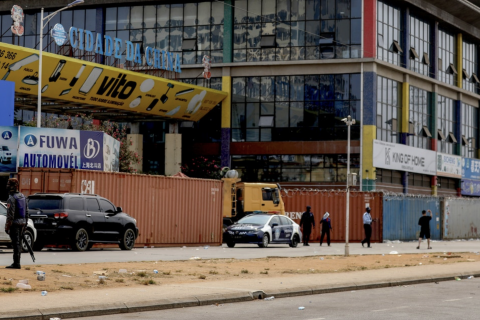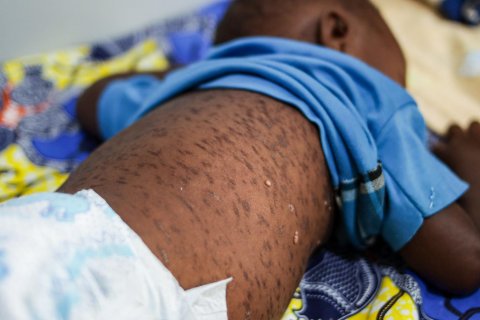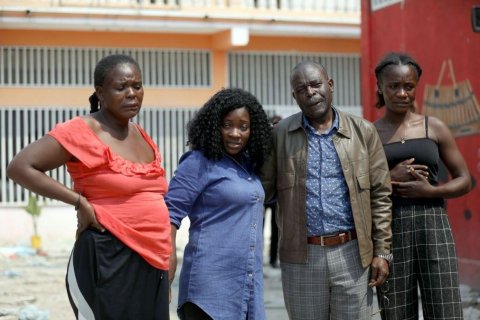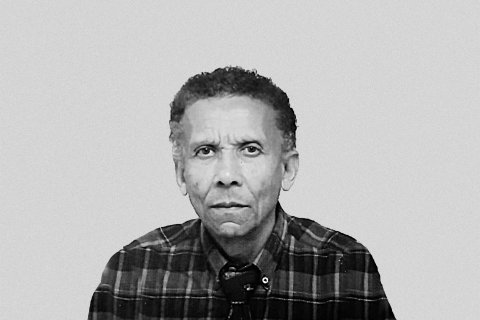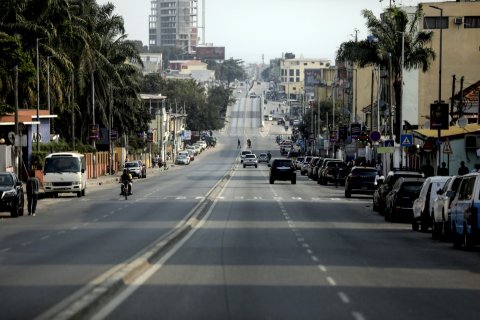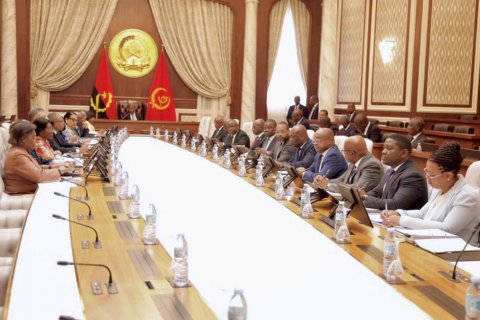“I think I have the right to defend my people. I have never belonged to the government, I have always been a worker – I call myself a proletarian intellectual – and they have little right to get me,” declared the novelist.
Professor of Portuguese Language at Agostinho Neto University, in Luanda, José Luís Mendonça, 69, spoke to Lusa about the launch by the publisher Guerra e Paz, on April 8, of his new book, “A Bird on the Moon”.
By revisiting themes from his latest works, related to the political, economic and social situation in the former colony 50 years after independence from Portugal, the novel “reveals the symptoms of the profound degeneration of the political regime in force in Angola since 1975, highlighting the poor governance, poverty and repression that characterize it”, according to the Portuguese publisher.
“I have not committed any crime against my people and therefore I believe I have the right to speak out about what is wrong. I walk freely in the streets, I am practically not afraid, [because] I owe nothing to anyone and I have not stolen anything from the State,” said the author.
Noting that, in Angola, “the book comes out, but it is read more in Portugal”, he added: “There is another thing that we have here [in Angola], people read little, leaders do not read, teachers read little and there are no books for sale”.
“So, the book doesn’t have a big impact in Angola, because people don’t read it. My students don’t read it, the book is very expensive and they don’t buy it either. Literature doesn’t have a big influence on the way of governing,” lamented José Luís Mendonça.
In the wake of his intellectual activity, the writer and journalist admitted to suffering “many threats”. “Threats over the phone that are sent to a relative of mine saying that they are going to kill me,” he explained.
For the former UNICEF press attaché in Luanda, “there is a lot of repression and torture is practiced extrajudicially” in the country.
“The practices of torture and arbitrary arrests, although on a reduced scale, continue. There continues to be repression in Angola that resembles to some degree the repression of colonial times,” he said.
In this context, José Luís Mendonça emphasized that the 27th of May 1977, a failed coup attempt led by Nito Alves, minister of the Government of Agostinho Neto, which was followed by the murder of thousands of alleged conspirators, is an event in the recent history of Angola “that has never been closed”.
“We never wanted to admit that there were crimes against humanity here, the main one being torture. So, even in the past, the executioners of May 27, those who committed crimes, were decorated for actions rendered to the country,” he criticized.
In his opinion, “African countries that have emerged from colonialism should have a different attitude towards the people they govern.”
“They say they can only govern with dictatorship. Is it not possible to govern these people without the whip?”, asked the creator of “A Bird on the Moon”.
It is important “not to let hope for quality education die”, he said, arguing that this will be the basis for the country’s democratization.
Regarding the 50th anniversary of Angola's independence, in line with the criticisms made, he concluded that “there is nothing to celebrate”.
“A Bird on the Moon” tells “the almost supernatural story of Kahitu, a character born with the 'tetra-melia' syndrome”, mute, without legs or arms.
“Even with this condition, Kahitu becomes president of Angola”, after having won “the love of the people and the sympathy of the high-ranking members of the ruling party, winning the elections”, according to the synopsis.
Posthumously, the writer dedicates the book to Mário Pinto de Andrade, one of the founders of the MPLA, “a politician with no attachment to power”, and to the journalist Ricardo Mello, “a martyr of freedom of the press”.
“November Rain” (1981), “The Kingdom of Casuarinas” (2014) and “The Metamorphoses of the Elephant” (2022) are other works published by José Luís Mendonça.


